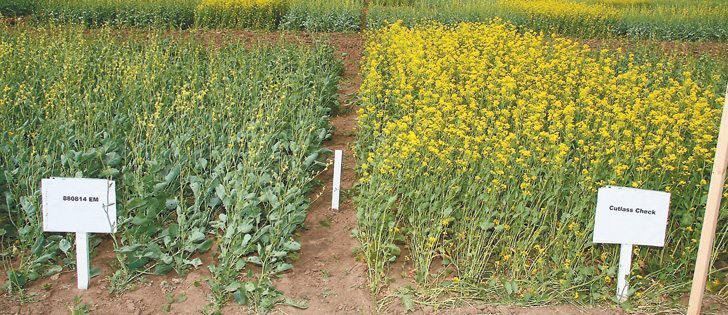Consolidation plans | Change causes anxiety
The announced closure of a special care facility in rural Alberta has stunned families as they scramble to find new places to accept their elderly relatives suffering from dementia.
Ginger Hegland-Deitz is protesting the closure of the Little Bow Health Centre in Carmangay while she and her family look for a new home for her 98-year-old grandmother.
Hegland-Deitz, who farms at Milo, had moved her frail grandmother to Carmangay from a long-term care facility in Vulcan eight months ago because her dementia had worsened. The facility at Carmangay was a good location for them to visit and offered specialized care for dementia patients.
Read Also

Agri-business and farms front and centre for Alberta’s Open Farm Days
Open Farm Days continues to enjoy success in its 14th year running, as Alberta farms and agri-businesses were showcased to increase awareness on how food gets to the dinner plate.
The facility has 20 beds and employs 40 people who provide around the clock care for its residents.
When families heard rumours of the closure July 10, the community rallied with more than 300 people turning out to protest. They received official notice July 17 and were advised to find new locations as soon as possible.
Families were given a list of bed openings at other locations and were told to select their top three choices. Hegland-Deitz was told if none of the options suited her, she could take her grandmother home.
“I am not capable of taking care of Grandma, but I would do my darnedest if I was forced into that situation,” she said.
Her grandmother has been in care since she was 92.
“They can move my grandma but I am so mad about what they are doing to rural Alberta and what the implications are with our government operating this way. I won’t be shut up,” said Hegland-Deitz.
Alberta Health Services officials told the families that the facility is closing because it no longer meets modern building code standards. Renovations to bring it up to code would be cost prohibitive.
Built in 1958 as a hospital, the building was converted to an auxiliary centre in the late 1980s. Major renovations were done at that time and an additional wing was built in 1992.
Hegland-Deitz felt the interior was clean and comfortable with activities and full care for the residents.
“It is not the dump they are painting it to be,” she said.
An independent inspection in March did not find any problems, and the community has asked for a study to determine how expensive renovations might be.
The facility is controlled by Alberta Health Services.
Hegland-Deitz and opposition MLAs say the centralized administration is not serving seniors well. They argue that local authorities should run senior facilities so families and communities can be more involved with elder care.
“I believe we should be investing in community based, non-profit facilities. Health care should be locally run and locally delivered,” said Raj Sherman, Liberal party leader and a part-time emergency room physician in Edmonton.
“What works in Edmonton doesn’t work in southern Alberta,” he said.
“Decisions are made from 300 miles away and you get a cookie cutter approach.”
Sherman was a member of the Progressive Conservative caucus and a junior health minister until 2010, when he quit over senior citizen policy. He favours more spending on home care so older people can live independently with family nearby.
He said moving dementia patients is too stressful and can endanger their health.
“The best home for you is your own home in your own community,” he said.
“It is a tragic situation in Carmangay. We need to keep our seniors in our communities.”
Wild Rose MLA Ian Donovan advocates community-based care. His mother also suffers from dementia and lives in a special facility in High River.
“This is just the tip of the iceberg. This is just the beginning of it. They are going to do this all over. People shouldn’t think this is a one off situation in southern Alberta. This is going to be Alberta wide.”
His attempts to speak with Alberta health minister Fred Horne were not successful.
“I ended up going to Edmonton and catching him at the premier’s breakfast so I could actually talk to him. He refused to return phone calls,” Donovan said.
“Whether I am in opposition or not, he should have the common courtesy to talk to a local MLA about these decisions.”
Donovan said he has also asked for operating costs and comparative figures with other similar units, but his request hasn’t been granted.
He said the government plans to consolidate these facilities by building 100 bed units closer to cities of 100,000 or more. People would enter the facility and live out their lives in one place with greater care offered as needed.
“We need more beds, not less. It is great the province wants to build some of these new facilities, but keep up the ones they have,” he said.
“They are going to kill people by doing this.… These are people who built this province and they are going to treat them like this. It is pretty disrespectful, in my opinion.”
His constituency in southern Alberta has eight facilities offering different levels of care.
“They talk about rural development and how to keep Alberta alive, but to me this is a no brainer. What they should be doing is keeping these facilities in rural Alberta running,” he said.
The province should consider turning the facility over to a private company if it doesn’t want to run it, he added.
“People in rural Alberta will find ways to keep their facility running. They’ll fundraise.”















